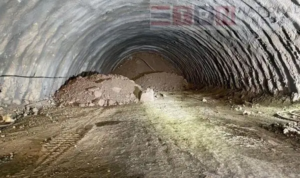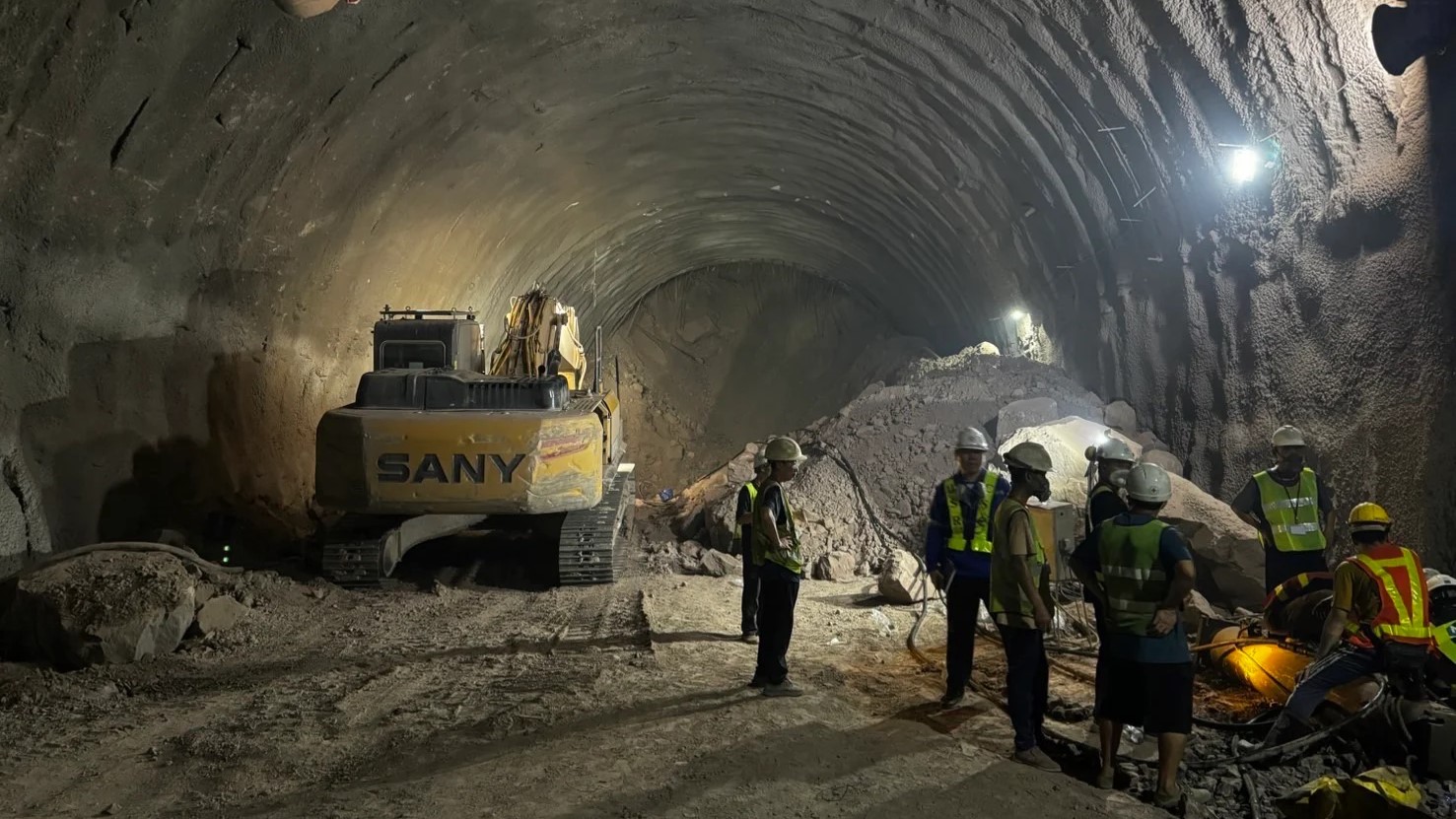 Time to walk the talk – Safety on public infrastructure projects in focus
Time to walk the talk – Safety on public infrastructure projects in focus
Bangkok Post Editorial
The government’s inadequate response to the collapse of the high-speed railway tunnel in Nakhon Ratchasima demonstrates its bizarre insistence on following the same playbook, which has been proven to be unlikely to improve safety management at the nation’s construction sites.
In response to the accident, which saw three workers trapped in the eight-kilometre-long tunnel, caretaker Transport Minister Suriya Jungrungreangkit ordered a “fresh probe” to determine how and why the tunnel caved in.
He also revisited the idea of a “scorecard” that would track the progress and safety records of companies working on public infrastructure projects.
The scores, he said, would determine the contractors’ eligibility to participate in bidding for similar projects in the future.
That was not the first time Mr Suriya had mentioned the scorecard. On Jan 30, he ordered the Mass Rapid Transit Authority of Thailand (MRTA) to create a “log” to monitor the safety record of contractors working on public transport projects after a series of safety-related incidents were reported on the Yellow Line monorail.
On Feb 27, he ordered the Department of Highways to develop a scorecard to record the overall progress and accidents involving roadworks along Rama II Road, after another accident on this notorious highway.

To be fair, Mr Suriya isn’t the only official choosing to stick with this well-rehearsed script. It has become customary for cabinet ministers or provincial governors to order a “fresh probe” immediately after a serious accident that has attracted public attention.
These officials would then promise to put the name of the contractor into a database that will affect their chances of participating in state projects.
While the idea deserves praise, the execution is definitely lacking.
The public has yet to see contractors banned from taking part in government infrastructure projects over poor safety records. In fact, such records are often overlooked in favour of other factors, such as price, practicality and past projects.
When an accident occurs, local authorities, or the relevant agencies or ministries, tend to deal with private contractors directly. As such, while these agencies do invite academics and accredited professionals to take part in their investigation and/or audits, these probes rarely result in safety improvements across the industry.
Over the past several years, safety experts and consumer groups have urged the government to form independent committees to carry out safety audits and promote safety regulations in the civil construction sector.
In March this year, the Thailand Consumers Council (TCC) publicly asked lawmakers to form a national committee to audit public infrastructure and construction projects. This national committee will be funded by taxpayers’ money and operate like the National Human Rights Commission. These independent experts will carry out investigations transparently, as opposed to conducting a “probe” behind closed doors.
In addition, the TCC urged the government to establish a national workplace safety to enable much quicker compensation payments to injured workers.
Needless to say, calls for such a committee have fallen on deaf ears. It is hoped the new cabinet under Paetongtarn Shinawatra will have the courage to turn the idea into action.
Source: https://www.bangkokpost.com/opinion/opinion/2854223/time-to-walk-the-talk


